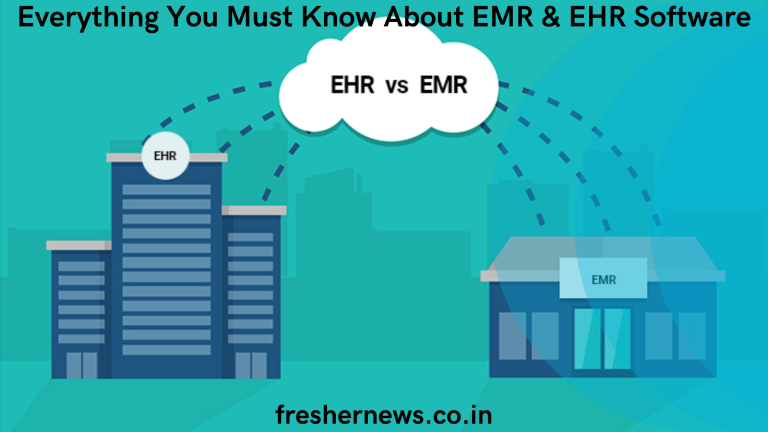The healthcare industry has plenty of acronyms used by healthcare experts in their day-to-day life. EMR and EHR are two such acronyms, which are often used interchangeably by many. Although they may sound similar, they have different meanings. If you usually get confused between the two terms and wonder what they exactly mean, what their purpose, how they are exactly different from each other, etc., this article will answer all your questions. So read until the end to gain better clarity on EMR and EHR.
EMR and EHR: Definition & Basic Difference
Electronic Medical Records (EMR) can be best described as a patient’s medical history maintained digitally by a single healthcare provider. This record contains details like the patient’s name, demographics, age, gender, past medications, allergies, radiology reports, lab reports, and details of every doctor visit. Some EMRs also contain information related to the patient’s health insurance.
Even Electronic Health Records (EHR) carry the same information for every patient. But the biggest difference between EHR and EMR is the former is maintained by multiple healthcare service providers. EHR records can also be shared digitally with other healthcare practitioners or healthcare service providers. But to share EMR records, the patient has to take a printout of the digital records and physically hand over the copy to a different healthcare provider. In terms of scope, EHR software is better than EMR.
Benefits of EMR & EHR
Both EMR and EHR are essential in the healthcare space. You can determine which one will better suit your needs if you understand their benefits well. So let’s quickly explore the benefits of both EMR and EHR.
Benefits of EMR
EMR features a user-friendly system, making it easier for doctors to access patients’ medical details with a few clicks. If your clinic has been offering healthcare services to thousands of patients, EMR can help better store, organize, and manage records. Since the records are stored digitally, you don’t have to use extra physical space to store the manual health records of each patient. EMR software can be a boon for medical practitioners, especially when they are noticing a constant increase in their number of patients.
Using EMR can also reduce organizational challenges to a great extent. While professionals working within the same facility can view patients’ healthcare records, it is not the case with external healthcare professionals. If any of your patients requires suggestion from a specialist that doesn’t work in the clinic, you will have to take a physical printout of the digitally stored medical record and hand it to the specialist for seeking guidance. But overall, EMR software is excellent for clinicians.
Benefits of EHR
If you feel knowing the entire patient’s medical history can help you better treat your patients, EHR software is all you need. EHR facilitates easy access to patient information, including past medications, allergies, lab tests, treatment plans, etc., leading to better treatment processes. Using a sophisticated EHR, patients and doctors can view the stored information and discuss the best course of treatment action. This system aims to simplify healthcare for doctors and patients.
Suppose a patient decides to switch healthcare professionals in the middle of any treatment. In that case, this record will help the new healthcare provider get all the necessary details about the patient’s medical history. Medical professionals can enhance care coordination by integrating EHR software with other essential systems like an EMR. The best part about EHR systems is they are highly secure, so you don’t have to worry about the overall security of your stored data.
EMR & EHR: Which is Better?
Both have a special place in the healthcare space. Professionals choose between an EMR and EHR, depending on their precise requirements. EMR is a secure and improved digital version of a patient’s medical record, whereas EHR refers to the digital record of a patient’s entire healthcare information. In the case of EMRs, you may have to physically take a printout of the healthcare records if you wish to share the details with a professional outside the clinic. But it is not the case with EHRs.
EMRs are primarily used by physicians, whereas doctors use EHRs for quick decision-making, care, and diagnosis outside of a particular doctor’s office. What you choose to invest in depends on your precise requirements. Now that you are clearly aware of the fundamental differences and benefits of using each software option, you will be in a better position to decide what works best for you.



0 Comments